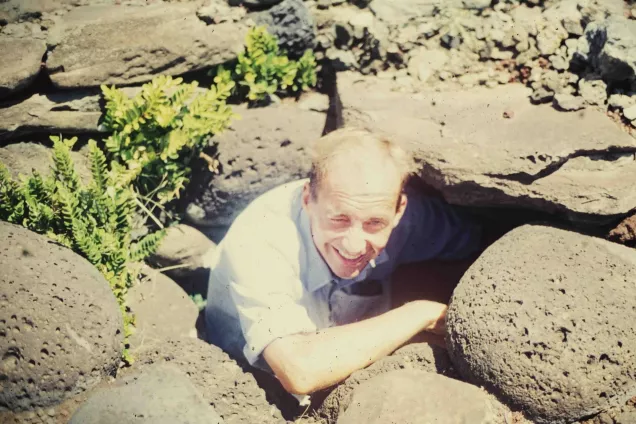How did you come to publish an anthology of retrospectives and reflections on your life as a researcher?
- It felt like the timing was right, when I'm no longer as young as I used to be and the transition to 'emeritus' is approaching. So, before I retire, I thought it might be a good idea to collect some of my more popular articles in one volume, easily accessible E-book. Apart from the pleasure of rediscovering myself, so to speak, I hope that the anthology will inspire people to think in an interdisciplinary way. I have always gone my own way, unconcerned about public opinion, and established boundaries between research fields. The result has been a far from single-minded research life and writing.
Much of the focus of the book is on Oceania, where did the interest in this continent come from in the first place?
- the rainforests, islands, and lagoons of the tropics have irresistibly attracted me ever since I watched the Swedish TV series " Villervalle i Söderhavet" as a little boy. Aquariums and terrariums became my substitutes for the observations I wanted to make in the field, and I
realised that anyone who wanted to do that had to have an education. In my case, that meant a bachelor's degree in biology with geo-science. During my student years in Lund, I got to know the author Sverre Holmsen, who had lived in Tahiti, and after that, it was a done deal. I decided to travel to the islands as soon as I had saved up enough money. I spent almost a year and a half in Oceania in 1983-84, most of it in Rarotonga where I got a job as curator of a marine zoo.
The kid with a taste for the exotic is still in me, but the researcher's realistic eye for darker aspects of life has been added."
- Studies in social anthropology and sociology followed, as did a doctoral thesis, and to cut a long story short, I ended up at the Department of Human Ecology. There, I found an outlet for my natural and social sciences and a base for long journeys. The boy with a taste for the exotic remains within me, but the scientist's realistic eye for darker aspects of life has been added. For example, I have written indignantly about colonialism and nuclear testing in the book "The Island of Black Pearls" (original title, De svarta pärlornas ö, 2003), and the history of racial biology is an important element in "The Impossible Chain" (original title, Den omöjliga kedjan, 2009).
What do you think the reader will gain from reading your book?
- Human ecology is a large interdisciplinary field with many possible paths, hence the title. The content may seem sprawling, but it reflects my personality. The world is too complex, and everyone must be honest with themselves and not follow intellectual or ideological paths. There is much we do not know, and curiosity is the most important quality of a scientist. Polynesians see the future as something that comes from behind and cannot be seen until it has already passed. It is with such a perspective that I have put together my anthology, and I hope that it will stimulate my readers' curiosity about both the future and the past. We can never catch up with the present.
I have always gone my own way, unconcerned with public opinion and established boundaries between research fields. The result has been an anything but single-minded research life and authorship."



